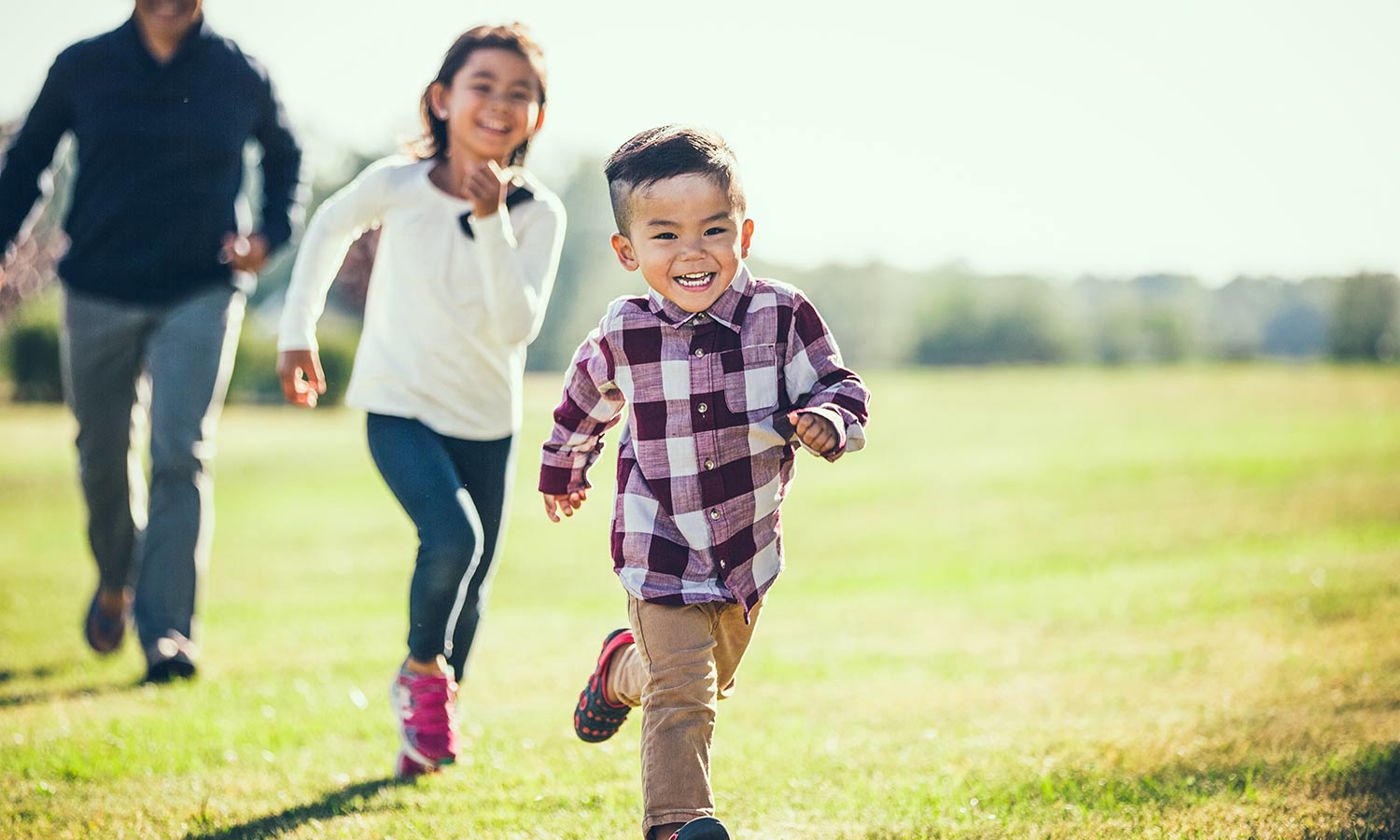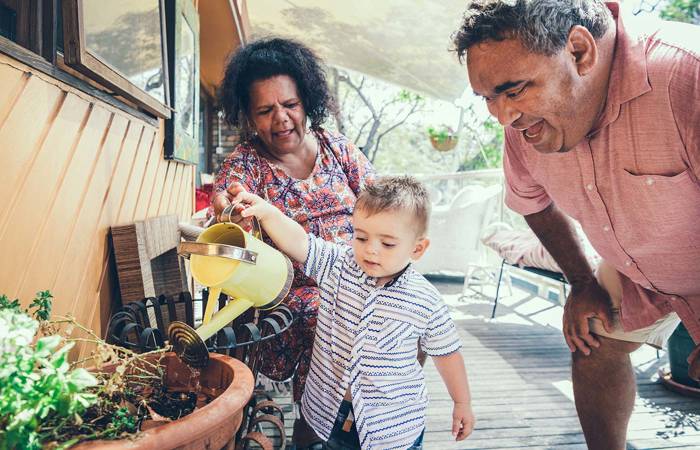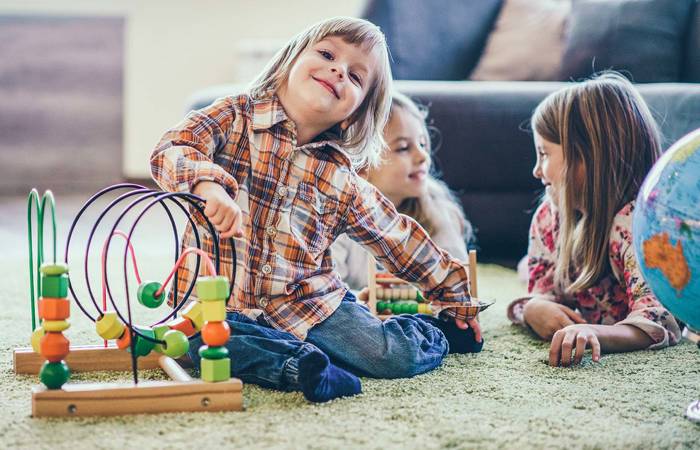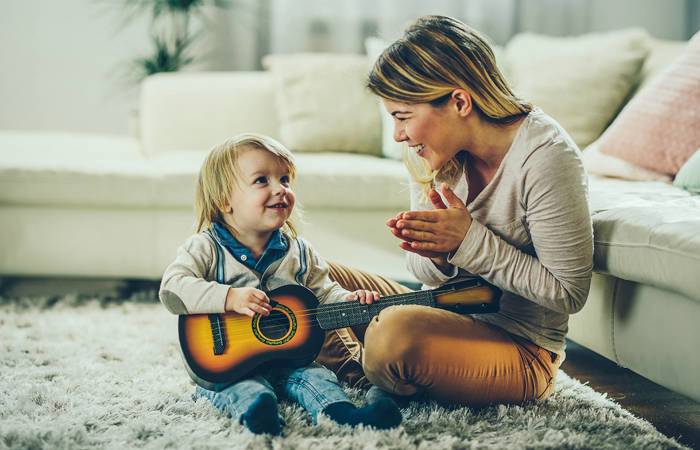Like what you see?
Sign up to receive more free parenting advice.
Thank you for subscribing to our newsletter!
Child Development

Credit: iStock.com/FatCamera
Parents wanting to build high quality relationships should start with social interactions with their children, according to psychologist Dr Rebecca Collie.
Dr Collie, Scientia Fellow and Senior Lecturer in Educational Psychology, UNSW, says building interpersonal relationships within families is vital.
“What we find over and over again in all walks of life for people of all ages, is just how important high-quality relationships are and having a sense of belonging with people around you,” Dr Collie says.
“So when it comes to children in the digital age, if we can focus on the social interactions, whether it’s playing with kids at the house or hanging out with family and friends and building in that sense of relationship, we can really help kids to appreciate simple things.”
Dr Collie believes it’s also important to help children appreciate the things in life that don’t cost any money – that we can still enjoy ourselves without having to constantly buy ‘stuff’ or pay for experiences.
“This is something parents will always battle with. What we can do with our children is to get them outside and do things such as camping on the weekend, and experience something different that doesn’t necessarily cost money, but is quite different to what they do on a daily basis,” Dr Collie says.
“That way, the kids can see there are different things to do that are fun and free.
“It’s also important to limit the screen time with digital devices. Families can make their own rules but they can seek guidance through national and international organisations, in relation to what’s appropriate for different age groups. That can help them set boundaries to ensure kids are doing other things and they’re not just on digital devices all the time.”
It’s very difficult to fully connect with children if we are on devices. Your child might be telling you a story about something important that’s happened to them and you can both have a laugh – that’s much less likely to happen when we’re distracted with a device.Dr Danielle Einstein
Stay up to date with the latest news and articles from First Five Years
Thank you for subscribing to our newsletter!
Once we are off our devices, Dr Einstein says we’ll start to experience real moments of pleasure as we pay attention to our children and build positive parent-child relationships.
“It’s very difficult to fully connect with children if we are on devices. Your child might be telling you a story about something important that’s happened to them and you can both have a laugh – that’s much less likely to happen when we’re distracted with a device.
“We need to build the ability to show our kids that we can enjoy basic things, because we’re losing the ability and so are our children.”
Another issue is when our children see their friends receiving toys or being taken away on exotic holidays. Dr Collie believes children need to understand what they’ve got rather than what others have.
“One way to do this is through mindfulness. There are several online resources for children and families where you can engage in mindfulness activities and what’s known as gratitude activities. It’s all about getting children to think about what they’re grateful for today, and when they’re focusing on those things, they’ll get a better appreciation of what they’ve got,” Dr Collie says.
Dr Einstein suggests one way of dealing with kids who think their friends have ‘more stuff’ or better holidays, is just to talk about it.
“You can say, ‘I know that your friend got the latest iPad, or is going to Fiji on holidays and, in life, there’s always going to be some kids that do and some that don’t, but we’re not doing that right now.’ Let them know it’s okay to feel a bit envious and wish you had something your friend has,” Dr Einstein says.
“You can also let your child know that those feelings of envy happen to adults too and it’s a normal reaction.
“It’s better to talk about it and identify with what your child is feeling, rather than denying it or telling your child they shouldn’t feel that way.
“It’s more about saying, ‘Okay, it’s fine to feel a bit grumpy about it.’ Then you can talk about it for a while before moving on.”






